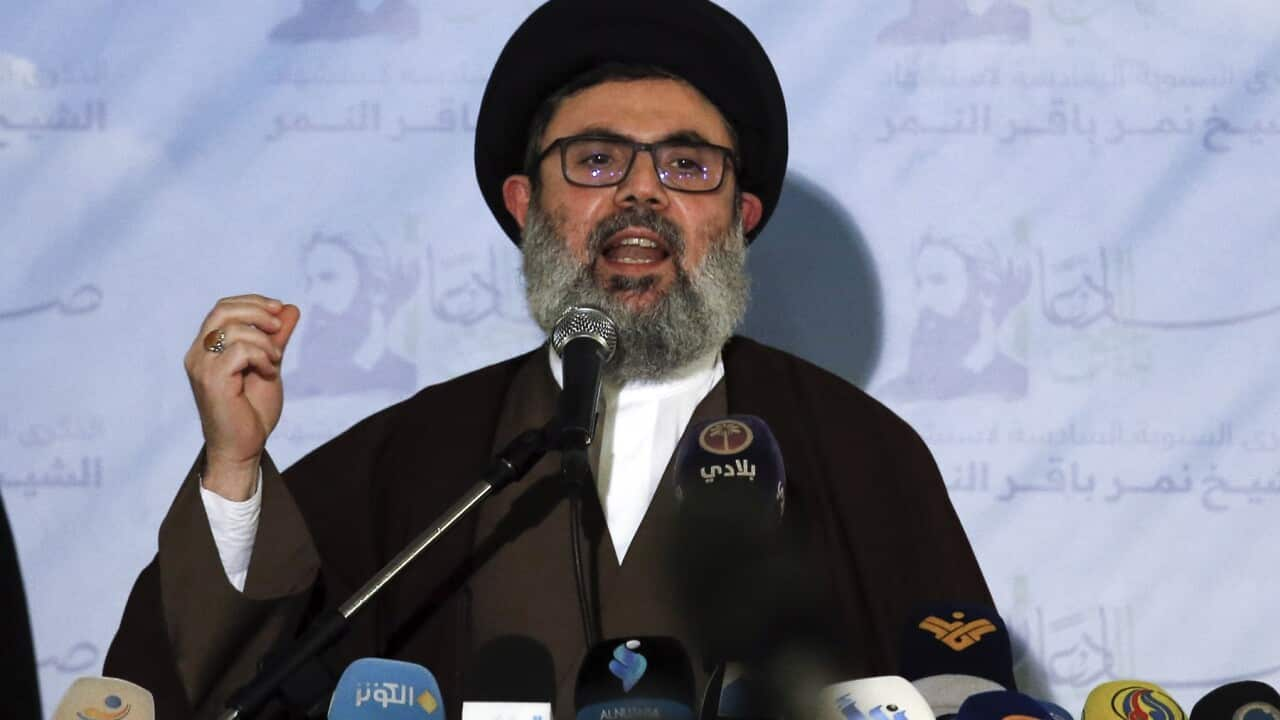TRANSCRIPT
The Israeli military has confirmed the killing of Hashem Safieddine, the presumed successor of Hezbollah chief Hassan Nasrallah, who was killed in an Israeli attack last month.
Hezbollah has not yet issued a statement regarding the death, which Israel says occured on the 8th of October.
But Israel has responded to a Hezbollah drone attack which damaged Israeli Prime Minister Benjamin Netanyahu's private residence.
Mr Netanyahu’s home was hit and lightly damaged during the attack but no injuries were reported as neither the Prime Minister or his wife were in the home at the time.
Government spokesman David Mencer says it was a grave mistake.
"It will, of course, not deter Israel from continuing our just war against our enemies in order to get a better future for all the people in this region. Now, the Prime Minister's made clear to Iran, which, of course, backs Hezbollah and its proxies in its axis of evil. He said very, very clearly that anyone who tries to harm Israel's citizens, will pay a heavy price."
United States Secretary of State Antony Blinken has met Israeli Defense Minister Yoav Gallant during his 11th visit to the region since the outbreak of the Israel-Hamas conflict.
Mr Blinken is attempting to revive efforts to secure a ceasefire in Gaza following Israel's killing of Hamas leader Yahya Sinwar.
The Secretary of State says Israel should see the Hamas leader's death as their chance to end the war in Gaza.
"I believe very much that the death of Sinwar does create an important opportunity to bring the hostages home, to bring the war to an end, and to ensure Israel's security. And that's exactly what our conversations today focused on with our Israeli colleagues, including arrangements for the period following the end of the conflict."
Meanwhile, the United Nations say Israeli authorities continue to deny it's Humanitarian Affairs Office request to help rescue civilians under rubble and to bring aid into Northern Gaza.
Secretary-General spokesman Farhan Haq says hostilities in Lebanon continue to impact peacekeepers in the region.
"We're still waiting for the green light to help dozens of people trapped under the collapsed homes in the Fallujah area of Jabaliya. OCHA says a request to bring desperately needed humanitarian assistance to northern Gaza have also been denied. This includes planned missions by U.N. agencies and our partners to deliver lifesaving supplies, including blood, essential medications, food parcels and fuel to hospitals and water facilities."
Israel’s military has again ordered Palestinians in Gaza’s northern town of Beit Lahiya to leave their homes, hospitals and shelters.
The military dropped leaflets on the border town, demanding people head to the Indonesian Hospital through two streets.
This displaced civilian says the Palestinian people just want to live like other nations.
"We do not want food or drink. By God, please find a solution for us, even a truce. We are dying. I am from Beit Hanoun, and I have been displaced from one place to another. I will reach as far as Rafah, because I have been displaced so many times. Food and drink are not everything. We want a peace of mind, we want our children to live like other people. Our children are still young. We're being killed; we have wounded people, martyrs, and prisoners. What else can I say?"
Meanwhile, Lebanon has revealed it will need A$374 million a month to help more than a million people displaced by Israeli attacks.
Its minister in charge of crisis response made the announcement ahead of a conference in Paris to rally support for Lebanon.
Nasser Yassin says the government response, helped by local initiatives and international aid, only covered 20 per cent of the needs of around 1.3 million people uprooted from their homes and sheltering in public buildings or with relatives.
"It's billions of dollars of reconstruction, including houses, full villages on the border were blown up in the last few days, but also public institutions, water establishment, pumping station, hospitals, name it. All of these need to be rebuilt, but let's stop this war, and we will rebuild it."













